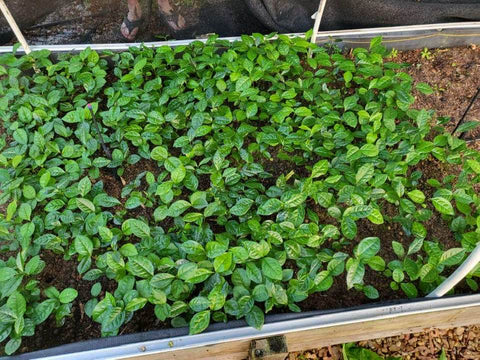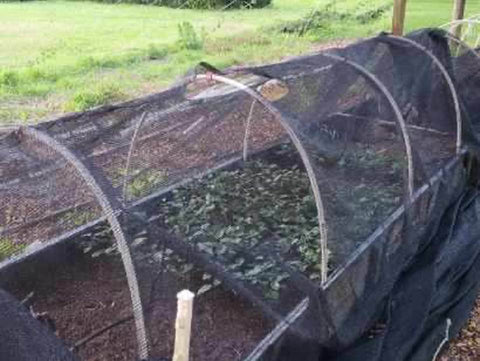When you are looking to plant a number of tea plants, does the origin of the tea seed really matter? As it turns out, yes it does!
In March of this year we planted some seeds from Taiwan. This means we now have seeds from Georgia, Nepal, India and now Taiwan on our US tea farm here in Brookhaven, Mississippi. Although they are all Camellia Sinensis each seed performs differently.

Each seed is bred for different conditions with a different mother plant. Having a wide variety provides us with varying growing habits and potential flavors. It is also disease protection, to keep us from being a "monocropping" situation from direct cloning. If a disease comes in and wipes out a plant, it is better to have variety or else they all get wiped out.
How do we keep track of the different plants once they are out in the field?
We have different plants growing in set blocks. Sometimes in mixed blocks but we know where everything is.
We also maintain an accession garden separate from any planting which gets DNA plated.
How does a new variety affect your harvest and cup of tea?
Over time, the plants begin to perform like the ones near them. This has been shown in some newer DNA phenotypic expression studies. The plants may have slightly different chemical contents based on genetics but it is more and more about the process and growing technique and less about genetics in the final cup.
How do we care for our seedlings?
These are Taiwanese seedlings that were germinated in March. We removed the plastic cover recently and put on the shade cloth. In about a week, we will remove the shade cloth altogether and they will be ready to plant over in early June.

When can you plant seeds?
Once your temperatures are above freezing you can plant the seeds. Tea seeds only need to be partially covered. We wet them and cover them with plastic to keep the humidity up.
Want to read more about tea seeds check out this blog on processing tea seeds.



Leave a comment